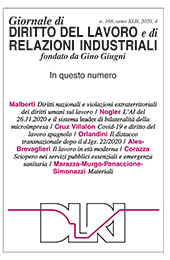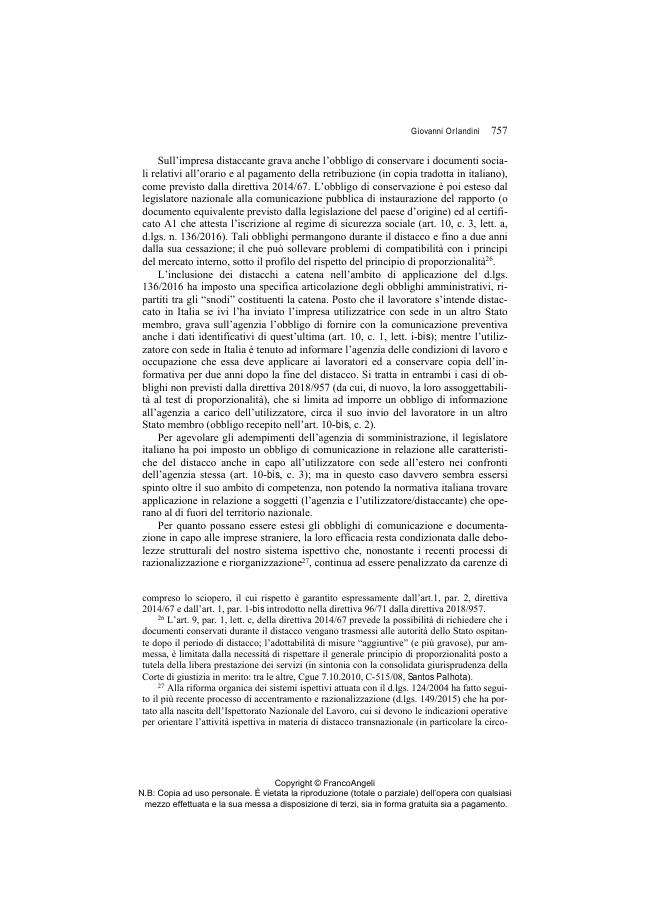Il distacco transnazionale dopo il d.lgs. 22/2020
749-765 p.
L'articolo analizza le principali questioni giuridiche che rendono problematica l'applicazione della disciplina del distacco transnazionale nell'ordinamento italiano, contribuendo ad esporlo al dumping operato da imprese con sede in altri Stati. L'analisi si sofferma in particolare sulle novità introdotte dal d.lgs. n. 22 del 15 settembre 2020 che ha riformato il d.lgs. 136/16 recependo la direttiva 2018/957. Il regime protettivo del lavoratore straniero distaccato in Italia, pur uscendo rafforzato dalla novella, continua a scontare gli effetti di un sistema di contrattazione collettiva patologicamente sregolato e della debolezza dell'azione ispettiva. [Testo dell'editore].
The essay analyzes the main legal issues that make the application of the rules on posted workers in the Italian legal system problematic. Indeed, the Italian labour market is still exposed to dumping by companies based in other countries. The analysis focuses in particular on the new norms introduced by Legislative Decree no. 22/2020 which reformed Legislative Decree 136/16 by transposing Directive 2018/957. The protective regime of the worker posted in Italy, while emerging strengthened by the reform, continues to suffer from the effects of a pathologically unregulated collective bargaining system and the weakness of the inspection action. [Publisher's text].
-
Artikel aus derselben Ausgabe (einzeln erhältlich)
-
Informationen
ISSN: 1972-5507
KEYWORDS
- Lavoratori distaccati, Condizioni di lavoro, Dumping salariale, Attività ispettiva, Unione europea
- Posted workers, Employment conditions, Wage dumping, Inspection activity, European Union



